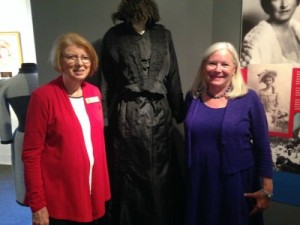Planes, trains and automobiles carried more than 900 member volunteers from points throughout the United States to San Diego for the 2015 Assistance League National Conference to celebrate 80 years as a national organization.
And what a celebration it was! San Diego was on board as the city and its residents paid tribute to the all-volunteer organization with a month-long exhibit at the Women’s Museum of California, “From Victorian Parlor to 21st Century Boardroom: The Story of Assistance League in America.”
Funded by the City of San Diego Commission for Arts and Culture and Assistance League of Greater San Diego, the exhibit chronicled the story of founders Anne Banning and Ada Edwards Laughlin to the present day. Guest curators included National Historian Anne Salenger, whose tireless research over several decades made the exhibit possible; assisted by Maggie Brasch, immediate past President of the 50-year-old Greater San Diego chapter.
As Assistance League moves into its next decade, National President Nancy Reberger stressed that the organization’s 120 chapters are increasingly vital to the well-being of people in the United States.
Reberger stated: “For several decades, most economists have seen an increase in the impact of nonprofit organizations as providers of health, social, educational and cultural service.” She also said: “Nonprofits like Assistance League will continue to play an important role in the future of our communities and society.”
While the role remains essentially the same, the players are beginning to change as younger working women and men join the ranks of former educators and professionals. Earlier this spring, Assistance League of Tucson made history with the installation of Johnny Williams, the first male President of any Assistance League chapter.
In keeping with the conference theme, “Celebrate the Past, Embrace the Future,” Assistance League member volunteers were inspired by educational and motivational sessions and through networking with their peers. The national organization rolled out a new website and a new membership database which will move chapters to a higher level of technology for the future.

